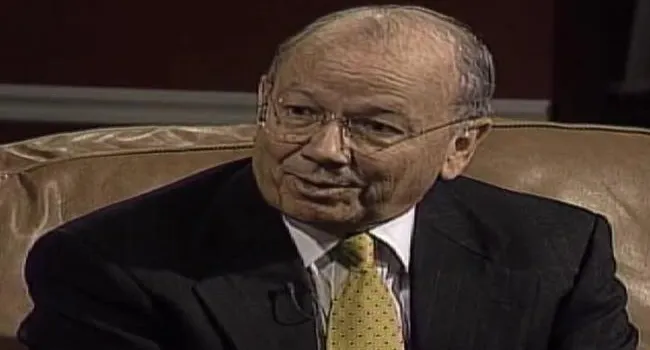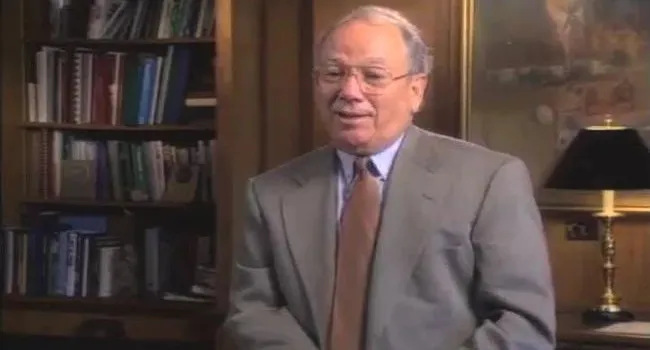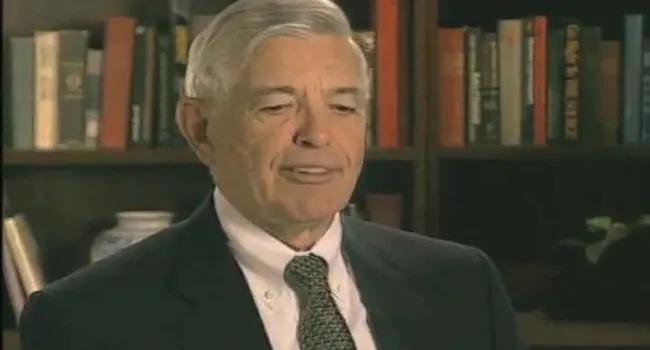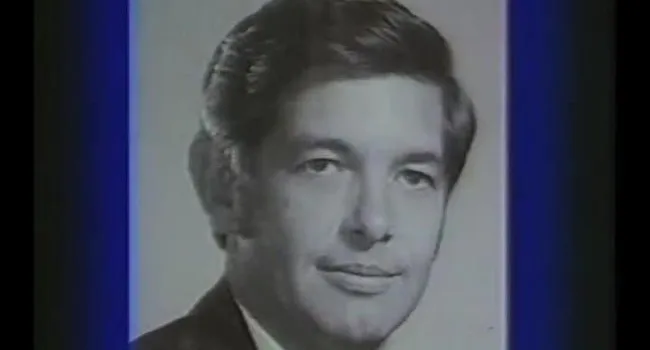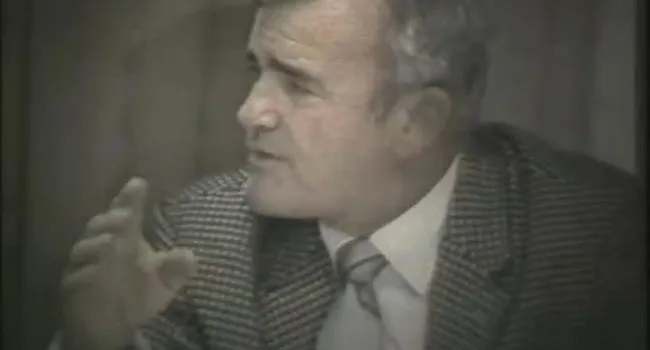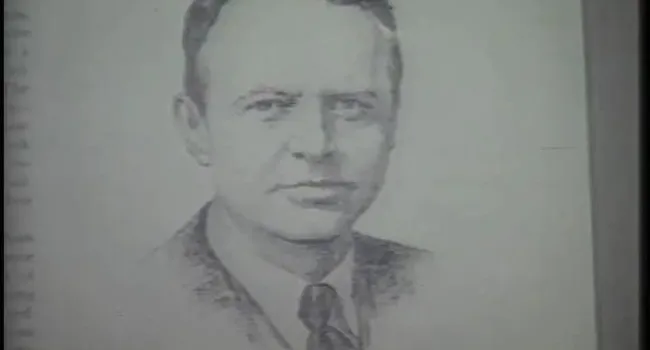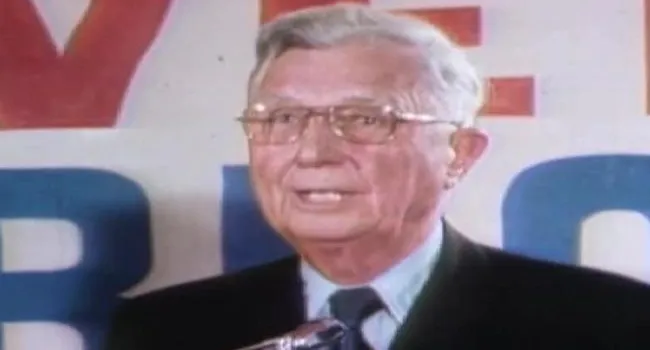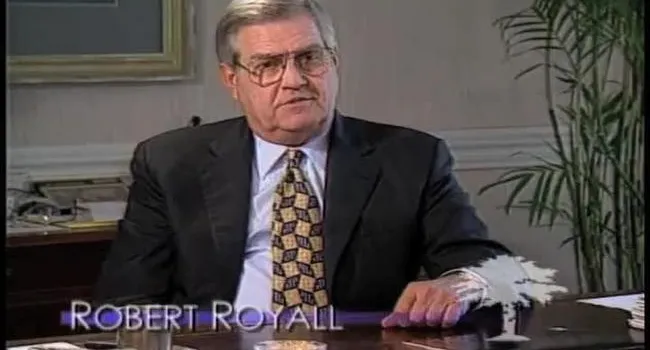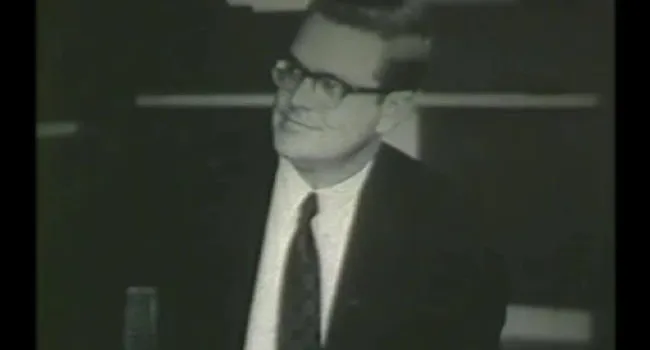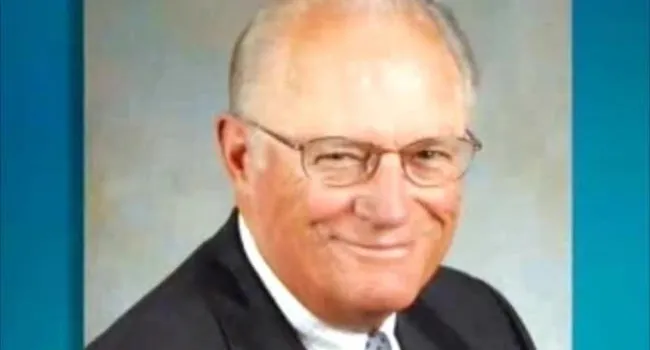John H. Lumpkin, Sr.
(1916-1999)
John Lumpkin knows about challenge and hard work and what it takes to be successful, but to hear him tell it, no one has enjoyed life more than he has.
"I have been very fortunate," he once told an interviewer. "I have something in my genes that makes me wake up every morning, even today at 75, and I can't wait to get going. I have the feeling that I am capable of doing anything if I put my mind to it."
John Henderson Lumpkin, Sr., was born January 28, 1916, in Fairbanks, Alaska, the son of the Reverend Hope Henry Lumpkin and Mary Henderson Lumpkin. His father was an Episcopal missionary to the Indians when the territory was truly remote. In winter, Lumpkin's father and other men hunted caribou and moose to provide meat for the community.
As one of four brothers, he grew up in Madison, Wisconsin. He was 16 when his father died in 1932, during the depth of the Great Depression, and his mother with her sons returned to Columbia, which was the family home.
John Lumpkin finished high school and then worked his way through the University of South Carolina. He was an office boy for an uncle, the late Alva M. Lumpkin. He labored in the summers on highway construction crews and drove dump trucks for 18 cents an hour.
He received a bachelor of arts degree from USC in 1937 and decided to attend law school. He chose Harvard, and through earned scholarships and family loans, he was able to pay his own way through law school.
He finished law school in 1940 and joined the firm of White and Case at 14 Wall Street in New York. The next year the United States entered World War II, and Lumpkin enlisted in the Navy.
For 26 months, he was a line officer on escort ships in the Aleutians, and, in 1944, he was transferred to duty in the Secretary of the Navy's office, where promotions followed. He was discharged as a lieutenant commander.
Lumpkin returned to White and Case but soon opened his own law practice in Columbia, which subsequently merged into Boyd, Bruton and Lumpkin. He immediately became involved in a number of significant community activities. He served as president of the Columbia Chamber of Commerce, commander of American Legion Post 6, president of the Columbia Kiwanis Club, a founder of Heathwood Hall School, and a member of the vestry of Trinity Episcopal Church, where he was junior and senior warden.
In 1964, Lumpkin began a 16-year association with the state's largest and oldest bank, South Carolina National. He served as president and chief executive officer of South Carolina National Bank and chairman and chief executive officer of South Carolina National Corporation.
When he joined SCN, the bank had 64 offices and assets of $374 million. When he retired as chairman of the board February 1, 1981, South Carolina National Corporation's assets exceeded $1.6 billion, there were 117 banking offices in South Carolina and 57 lending offices of affiliate Provident Financial Corporation in the Carolinas and Virginia.
Lumpkin was one of a limited number of business leaders in the state having broad national contacts, and he used those contacts, beginning in the early 1950s, to market South Carolina and her values to a wide variety of business interests throughout the nation.
He served as president of the South Carolina State Chamber of Commerce, president of the South Carolina Bankers Association, director of the Federal Reserve Bank of Richmond, and member of the Advisory Council to the Board of Governors of the Federal Reserve System.
His interests beyond the law and banking have been broad. For 20 years, he has promoted Brookgreen Gardens and has been a trustee, vice president, and treasurer of the Brookgreen board. During that time, he helped bring to the board other significant business and community leaders from around the region.
Lumpkin served as chairman of the South Carolina Independent College Foundation board for eight years and received the Alumni of Wofford College's Distinguished Citizen's Award. The University of South Carolina, Benedict College, Columbia College, and Coker College awarded him honorary doctoral degrees.
He led the first capital funds drive in the University of South Carolina's history. In 1963, he received USC's Algernon Sydney Sullivan Award for distinguished service. Two decades later, the USC College of Business Administration named a lecture hall for him, memorializing his strong commitment to its Business Partnership Foundation.
Lumpkin was a member of the state's first Higher Education Commission and the first Human Affairs Commission, and Governor Dick Riley awarded him the Order of the Palmetto.
He has been a director of Seaboard Coastline Railroad, Seaboard Industries and CSX Corporation, Family Finance Corporation, CN&L Railroad, the Liberty Corporation, SCANA Corporation, Seibels Bruce Group, South Carolina Insurance Company, Catawba Insurance Company, and VISA U.S.A.
Lumpkin is a member of the Richland County, South Carolina, and New York Bar associations, the 4th Judicial Circuit's conference, and was admitted to practice before the Supreme Court of the United States. After retirement, he served as counsel to the McNair Law Firm.
He was married to the late Caroline Sparrow Dalton of High Point, North Carolina, and they were the parents of a son, John H. Lumpkin, Jr., and a daughter, Caroline Lumpkin Sozzi, both of Columbia. There are also four grandchildren.
Lumpkin was inducted into the South Carolina Business Hall of Fame in 1991.
John Lumpkin died December 4, 1999
© 1999 South Carolina Business Hall of Fame








